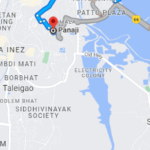Is Online Gambling Legal In India?
Gambling or betting has been attracting people for quite a while now. People from all walks of life try their luck by wagering a sum of money with the intent of winning more money than what was invested. Historically, gambling has been mentioned in several religious texts belonging to different mythologies, which makes the practice not unknown to the present world. In the United States, the emergence of cities like Las Vegas has flocked millions of people to try their luck in the city’s casinos. Las Vegas witnesses people betting their whole livelihood for the sake of winning even more money. In Asia, Macau sets a similar example. Here in this article, we will look into the Is online gambling legal in India? in details. Gambling scenario in India Gambling is one of the most pleasurable pastime games in India. In India, the Gambling scene varies by state, as some states are strict in terms of gambling laws while some are quite lenient. Each state in India has the authority to exercise its laws on betting and gambling practices. The state governments can formulate their state-specific laws. Gambling laws have also been mentioned in the seventh schedule of the Indian Constitution. The states across India are given choices for the adoption of the Public Gambling Act, of 1976. India still has a long way to go in the field of betting and gambling. Currently, betting and gambling are legal in only three Indian states out of which only two, Sikkim and Goa have casinos. Sikkim has 2, while Goa has 10 casinos. Two categories of betting and gambling in India In India, betting and gambling games are differentiated into two broad categories, games of chance and games of skill. Game of chance – The games which are played randomly and are completely based on luck are called games of chance. These games do not require any prior experience or knowledge. Some examples include picking a random number, rolling dice, etc. Game of chance games are considered illegal in India. Game of skills – The games which require several decision-making skills, analytical capacity, and logical and critical thinking are called games of skills. To play these games, a person needs to have prior experience and knowledge and also some initial training by experts to win. Game of skills are considered legal by most of the Indian states. Nevertheless, a huge ruckus revolves around these gambling games. Scenario of Online Gambling In India India has one of the fastest-growing markets for sports betting and online casinos. Every year, the number of Indians betting on sports is increasing rapidly on Online betting platforms, In 2021 alone, over 370 million people have placed bets on major sports events like the Indian Premier League (IPL). Many more people are getting involved in online gambling in India because it is much more economical than personal casino-style gambling. The coronavirus pandemic even escalated the situation as people were free to do anything inside their homes and they had an opportunity to make money without even leaving their respective homes. People didn’t need to leave the four walls of their homes and they were enjoying real casino-style betting and gambling. Indians belonging to all age groups are invested in online betting especially the younger generations, people in their early 20s. These people look forward to gambling prize money to fulfil their financial as well as social needs and also prevent them from being dependent on the money of their peers. Is online gambling legal in India? While gambling isn’t illegal in India, so far only three states, Goa, Sikkim, and Daman & Diu have completely legalized gambling. In India, horse racing is not illegal because horse racing requires some prior knowledge and experience so it is not all about gambling. Gambling activities on a national level are regulated by the Public Gaming Act of 1867. Since this law was passed long before technology took over the world, this law does not mention anything related to online betting or gambling. The Information Technology Act of 2000 also does not say anything about online betting and gambling activities. Due to the unsure nature of online gambling activities in India, people in states with no online gambling rules and regulations are not bound to place their bets online and play online betting games. State-wise online gambling laws and regulations In India, there are no National level laws that prohibit online betting and gambling. Recently, a few states have made explicit laws against online betting. Laws like the Public Gambling Act of 1867 are in place even today. However, Indian online gambling players are not penalized on the grounds of online betting. In Goa, Sikkim, Daman & Diu, and Nagaland, land-based casinos and online gambling are legalized under the Public Gambling Act, of 1976. The Rummy Federation, All India Gaming Federation, and Federation of Indian Fantasy Sports have adopted a self-regulation code for all their advertisements. Laws on Online Casinos in India It is prohibited for Indian casinos to promote online gambling and betting games such as bingo, sports betting, etc. However, for non-Indian casino companies, it is not illegal to focus on and promote Indian online gambling players. The only rule is that these non-Indian casino companies have to pay the Indian online gambling players in Indian rupees and not any other foreign currency. Gambling Laws in Sikkim The state of Sikkim, which is one of the only three Indian states where gambling is legal also permits an online lottery where players from all over India bet. Other Indian states were also expected to follow this thereby opening a major online gambling market throughout India but somehow, things didn’t turn out as it was supposed to. List of States where Lotteries are legal Lotteries have been legalized in several states of India. These include Goa, Kerala, Arunachal Pradesh, Assam, Maharashtra, Madhya Pradesh, Mizoram, Manipur, Meghalaya, Punjab, Nagaland, West Bengal, and Sikkim. Gambling Laws in Nagaland E-gaming has been legalized in
Is Online Gambling Legal In India? Read More »










